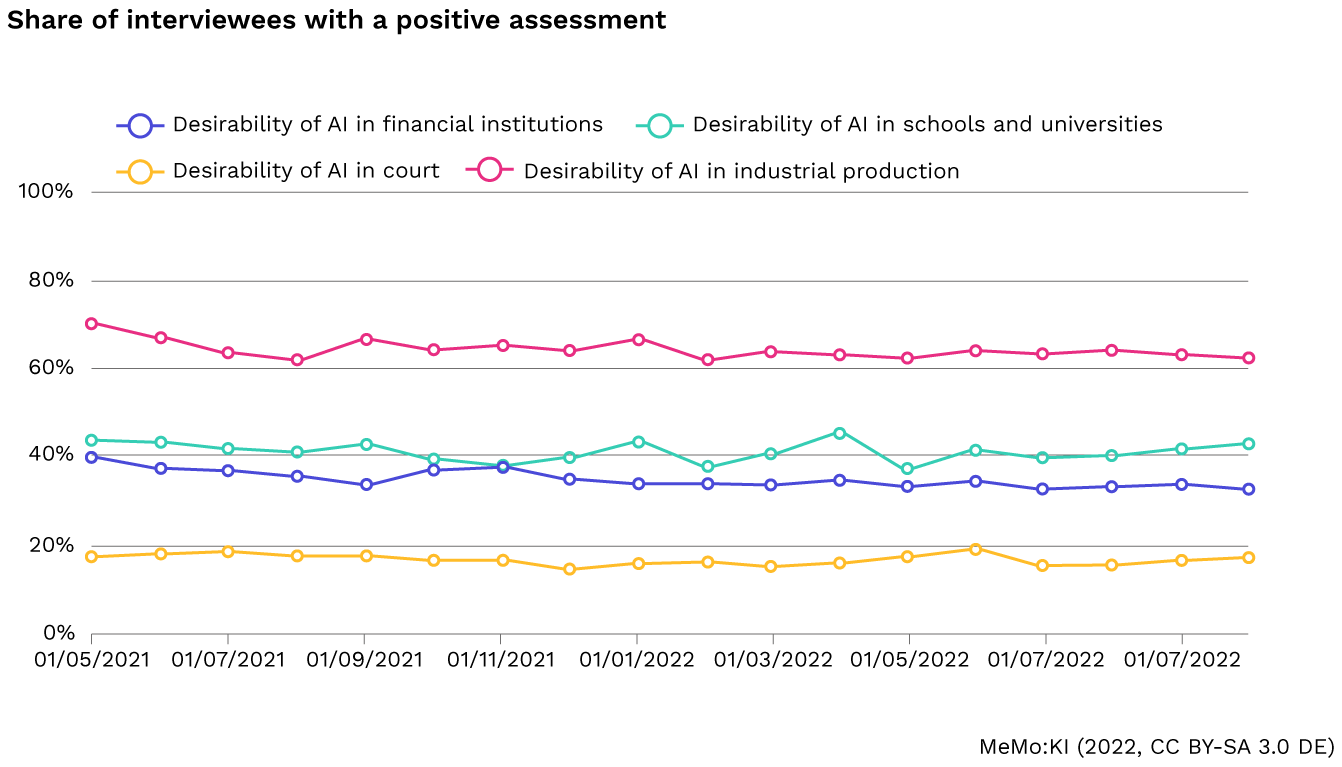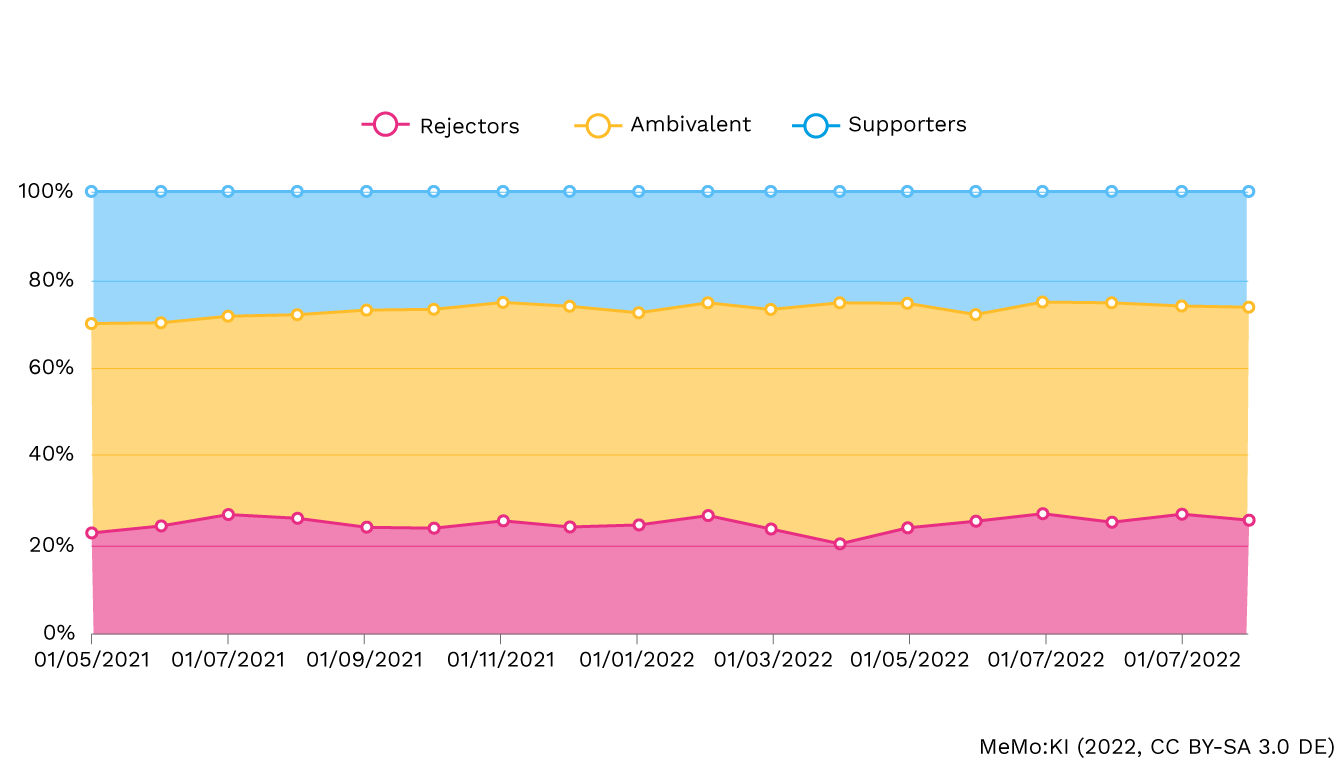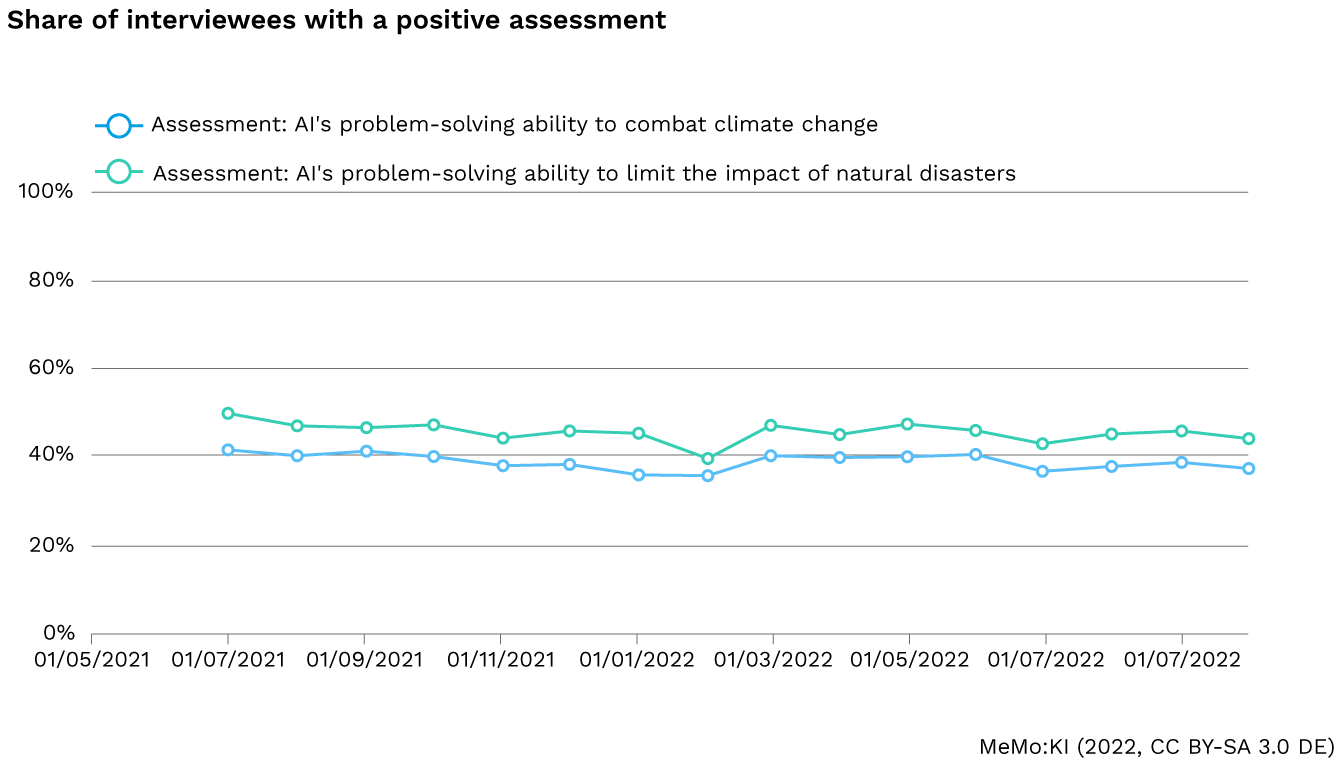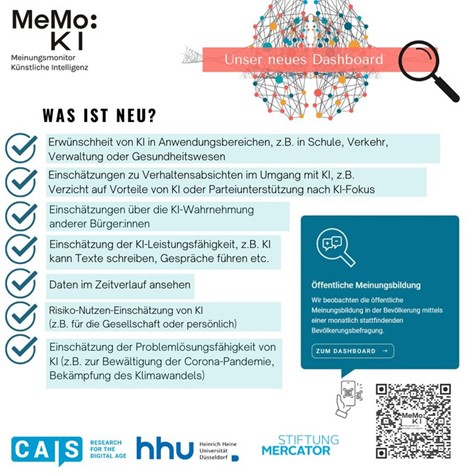
It is often assumed that people engage with technologies like Artificial Intelligence outside of professional discourse and have a general interest in them. However, to gain society-wide attention, these topics must first cross a certain threshold of interest. Despite daily heated debates, for instance on social media, not every topic garners enough attention to become a broad societal discussion. So, is there truly widespread public interest in the topic of AI? The Opinion Monitor Artificial Intelligence (MeMo:KI) addresses this question with its new data dashboard.
Public interest in Artificial Intelligence
Researchers at Heinrich Heine University Düsseldorf, in collaboration with the Center for Advanced Internet Studies in Bochum (CAIS), study opinions and perceptions on Artificial Intelligence. To examine the development of public interest in AI and its role in public debates, the research team led by Prof. Frank Marcinkowski has been surveying 1,000 people over the age of 18 every month since 2021 about their views on Artificial Intelligence. The data is organized and visualized in an interactive online dashboard.
The results of the Opinion Monitor show that respondents generally express low interest in the topic of Artificial Intelligence. Participants were also asked how often they had read articles on Artificial Intelligence in a daily or weekly newspaper, in blogs and online magazines, seen it on television, or heard about it on the radio over the past month. Looking at the responses, the value of time-based measurements becomes clear: in December 2022, 30.8% perceived an AI-related article in the media at least once per week. This figure rose to 35.5% in January, possibly due to the hype around ChatGPT. Another question sheds light on the subjective perception of knowledge about AI: around 30% of respondents consistently rate their knowledge of AI negatively over time, while around 20% develop a more confident, positive self-assessment over time.
Public attitudes toward the use of Artificial Intelligence
What areas of application come to mind when you think of Artificial Intelligence? Each month, the researchers ask 1,000 people to what extent they support or oppose the use of AI in financial institutions, healthcare, industrial production, transportation, personal daily life, education, public administration, political decisions, courts, law enforcement agencies, and more recently in the armed forces, air force, navy, as well as intelligence and security agencies.
Artificial Intelligence generally meets with public approval in industrial production, transportation, education, and healthcare. However, the use of AI in banks, insurance companies, police, and judicial systems is mostly opposed by the majority.

To help visitors better understand the approval levels for these application areas, the dashboard offers “Top-Boxes” that summarize the percentage of respondents who responded with approval. For those less familiar with statistical terms, there’s a glossary on the website, along with a brief visual guide to the dashboard.
A fascinating finding is that people generally show ambivalent attitudes (about 50%), yet more supporters than opponents exist in these areas of application.

To gain an even clearer picture of approval or disapproval across all application fields, the dashboard also shows a summary of how many people support or oppose AI use in the majority (i.e., at least 6 out of 10) of these areas.
Can Artificial Intelligence solve major problems?
In addition to opinions on the desirability of application areas, further topics are available for survey responses, which can be viewed over time in the dashboard. Do you think young people are more positively inclined toward AI? You can easily check this by clicking through the in-depth analyses on the dashboard. Have you come across interesting results you’d like to share with others? The graphics in the dashboard can be downloaded and shared on social media, for example.
Currently, the survey results on AI’s problem-solving abilities are particularly interesting. From this, we can infer the expectations people associate with technology in times of crisis. Almost half of respondents believe that AI can help mitigate the effects of natural disasters.

Public perception of AI’s ability to address crises, like climate change or natural disasters.
The confidence in AI’s ability to solve issues related to the COVID-19 crisis, manage migration, or address educational equity is somewhat lower. The least faith in AI exists regarding its potential to reduce the social gap between rich and poor—fewer than 20% of the population hold this view.
Why is public view on Artificial Intelligence important?
Decision-makers tend to use a personal sense of “public opinion” to support their position. This can have significant consequences for AI’s use and development, especially if a perceived public view leads to public funding for AI research or educational initiatives. The Opinion Monitor Artificial Intelligence (MeMo:KI) provides a data-based counterpoint to anecdotal perceptions. Decision-makers benefit from these data, as they can align their decisions with the informed judgments of the population.
The data is also valuable for journalists: they can include the public’s voice in articles about AI-related topics, reinforcing their reporting with figures and facts instead of assumptions. The project’s goal is to make freely available information accessible to a broad, interested public.
About the project
MeMo:KI is a research partnership between the Center for Advanced Internet Studies in Bochum and the Heinrich Heine University Düsseldorf, funded by the Mercator Foundation. The project tracks public and published opinions on AI, drawing on three data sources:
- A monthly survey of 1,000 randomly selected citizens.
- The analysis of the most widely circulated print and online media on Artificial Intelligence.
- The presented Twitter communication.
All results are publicly available and displayed in a dashboard with interactive graphics. Users can explore for themselves how discussions about Artificial Intelligence are conducted across the population, in print and online media, and on social media platforms.

